Are you considering an academic withdrawal and unsure how to officially communicate your decision? Writing a clear and respectful letter can ensure your intentions are understood, while also preserving your relationship with the institution. Crafting the perfect confirmation letter involves outlining your reasons and expressing gratitude for the experiences you've had. Let's dive into some helpful tips and a template that you can customize for your needs!

Sender and Recipient Information
A formal academic withdrawal from a university involves various administrative processes and documentation. Academic withdrawal often affects student status, financial aid eligibility, and course completion records. University policy typically requires students to submit a written request, often through an official form, to the registrar's office. Key dates, such as withdrawal deadlines (for instance, generally falling at the halfway point of a semester), can be crucial in determining whether refunds or credits apply. Students should be aware of any repercussions their withdrawal may have on their degree progress or future enrollment. Communication with advisors is recommended for understanding the implications of this decision, particularly concerning academic standing and re-enrollment procedures in subsequent semesters.
Subject Line with Key Details
Academic Withdrawal Confirmation - [Student Name] - [Student ID] - [Date] The academic withdrawal process has been initiated for [Student Name], student ID [Student ID], from [University Name] as of [Date]. Student has officially requested to withdraw from the current semester due to [specific reason, e.g., personal circumstances, health issues, financial constraints]. All relevant documentation has been submitted to the admissions office. The withdrawal will reflect on the academic record as 'Withdrawn' for courses enrolled in the [Semester, e.g., Fall 2023], and there will be no academic penalties. It is advised to check with the financial aid office concerning any potential impacts on scholarships or grants. Further assistance regarding readmission procedures for future semesters is available through the academic advisor's office.
Clear Opening Statement
Academic withdrawal refers to the formal process by which a student chooses to discontinue their enrollment at an educational institution, such as a university or college. This decision often arises during significant personal challenges, impacting students' ability to manage coursework effectively. Withdrawal procedures typically vary by institution, with specific deadlines and requirements that must be met to avoid academic or financial penalties. For many, clear communication with academic advisors and adherence to institutional guidelines are critical steps in ensuring a smooth and formal exit from their academic programs, while also preserving options for future re-enrollment.
Relevant Withdrawal Details
Academic withdrawal can significantly impact a student's academic journey, particularly within institutions like universities or colleges. Relevant withdrawal details include the official withdrawal date, which typically marks the end of enrollment in a particular semester or term. It also encompasses the specific reasons for withdrawal, such as personal health issues, family emergencies, or academic performance struggles. Additionally, other critical factors might include potential financial implications, like refund eligibility for tuition fees and the effect on financial aid packages. Understanding these details is crucial for ensuring a smooth transition away from academic responsibilities while safeguarding future educational prospects.
Contact Information for Follow-up
The process of academic withdrawal requires precise adherence to institutional policies. Students completing forms must include crucial personal details such as full name, student identification number, and contact information, including active email address and phone number, to facilitate seamless communication. Ensuring accurate records helps the administration address withdrawal requests effectively. Additionally, specifying the reason for withdrawal-- such as health challenges, family responsibilities, or financial hardship--provides context for review. Institutions may impose deadlines; for example, many require submissions at least six weeks prior to the semester's end to process requests efficiently. Ultimately, maintaining open lines of communication enhances transparency throughout this administrative process.
Letter Template For Confirming Academic Withdrawal Samples
Letter template of academic withdrawal confirmation for personal reasons
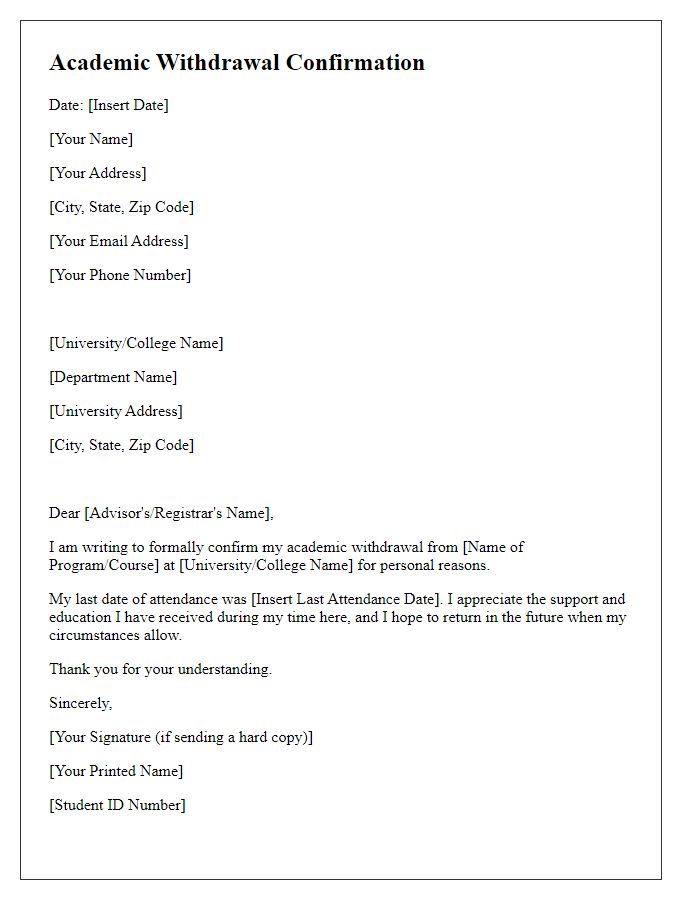
Letter template of academic withdrawal confirmation for financial difficulties
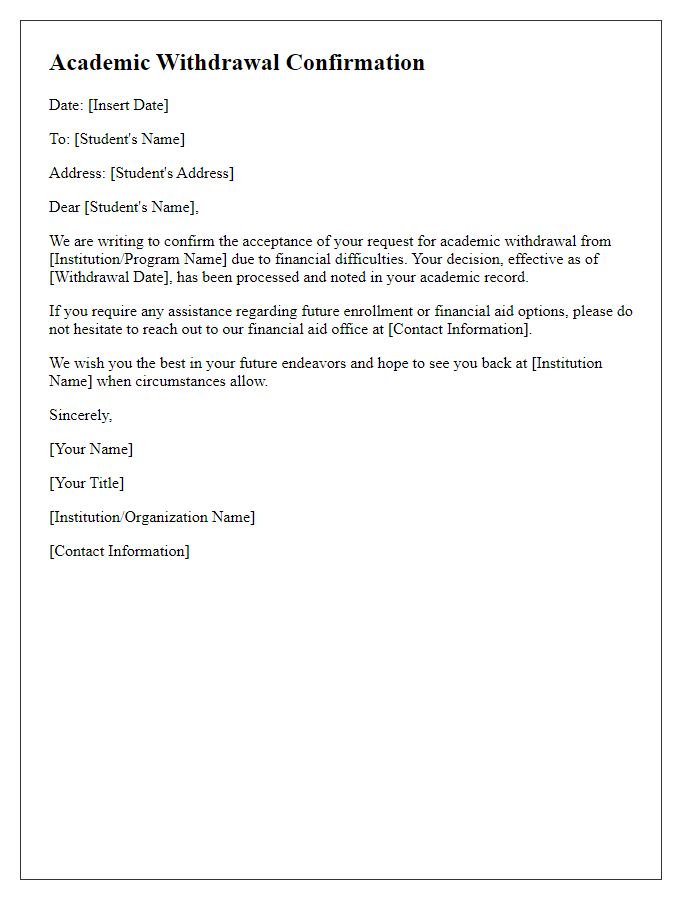
Letter template of academic withdrawal confirmation for family obligations
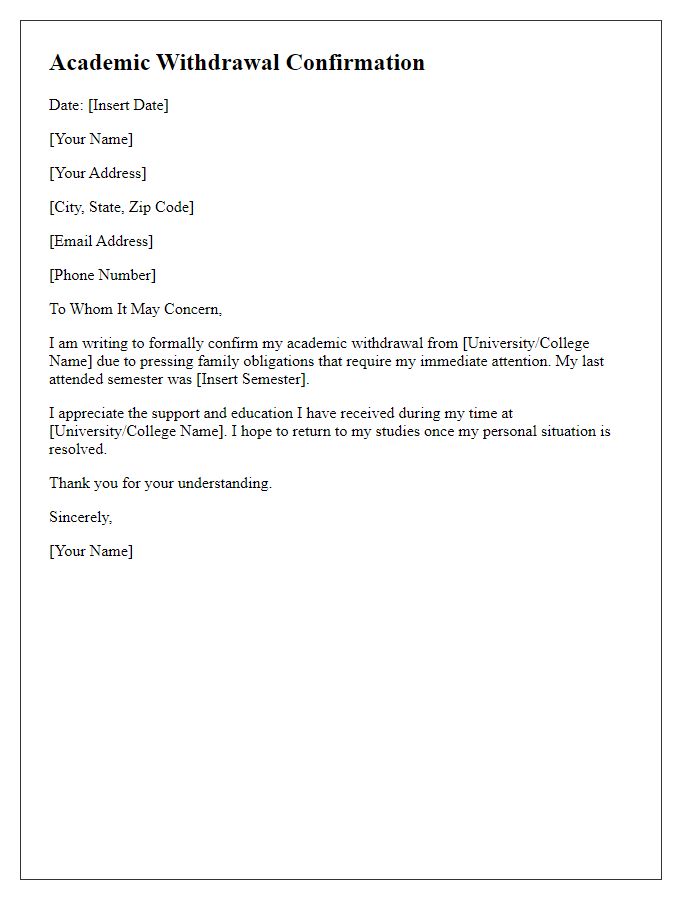
Letter template of academic withdrawal confirmation for career opportunities
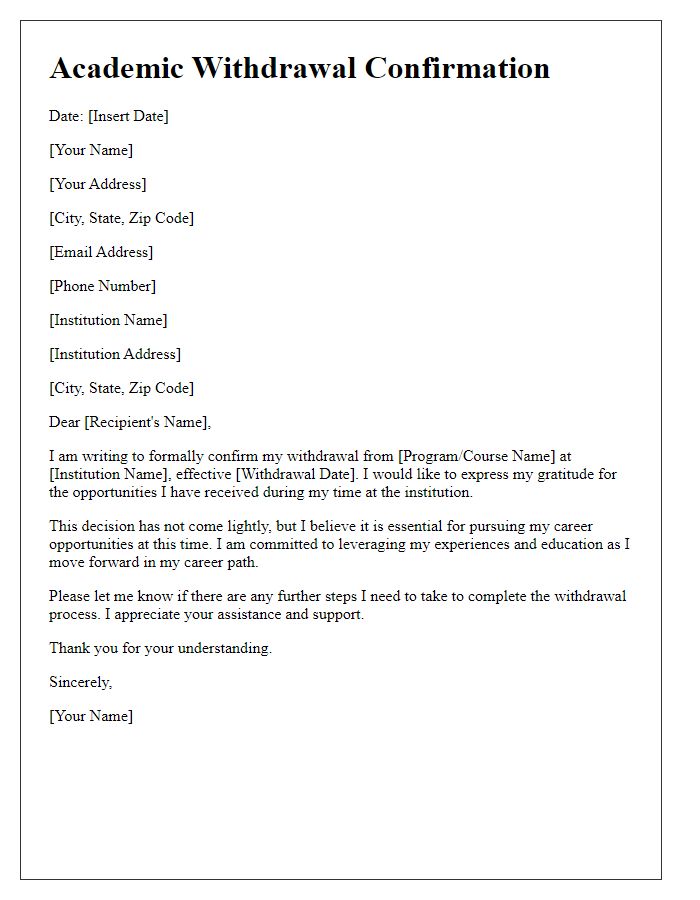
Letter template of academic withdrawal confirmation for study abroad plans
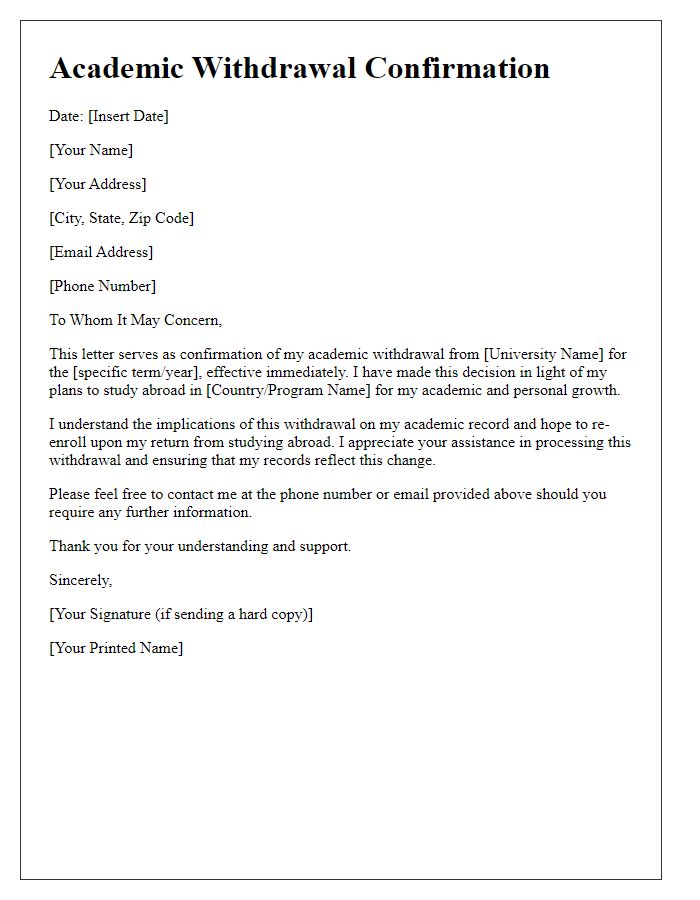
Letter template of academic withdrawal confirmation for mental health considerations
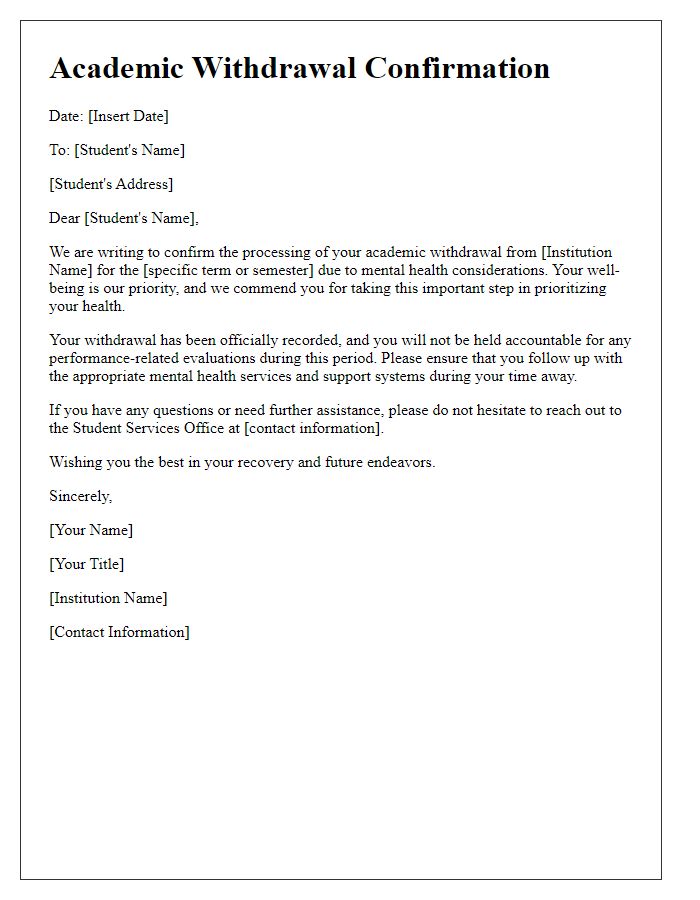
Letter template of academic withdrawal confirmation for program incompatibility
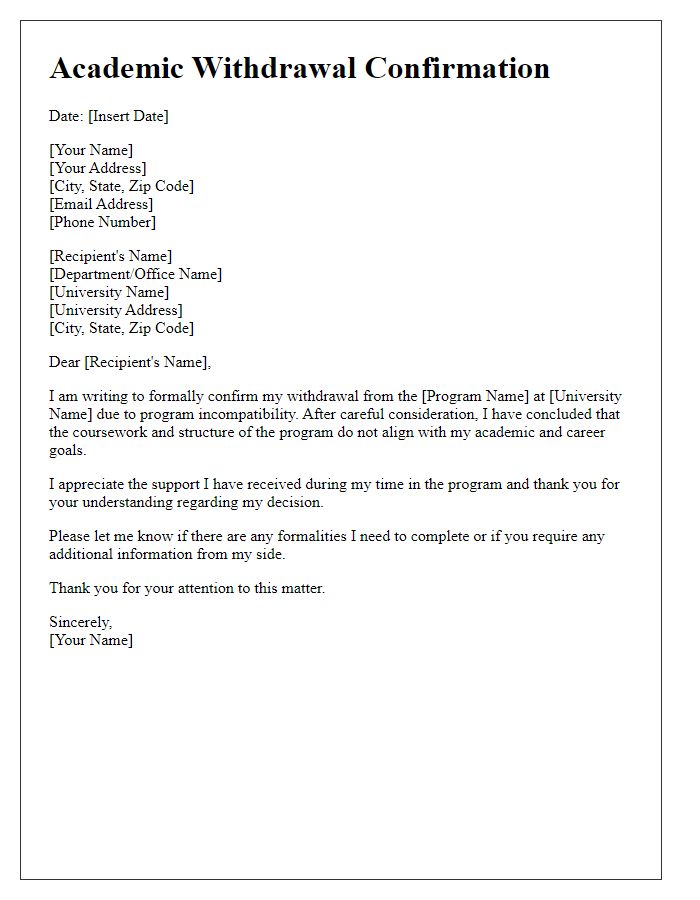
Letter template of academic withdrawal confirmation for unexpected life events
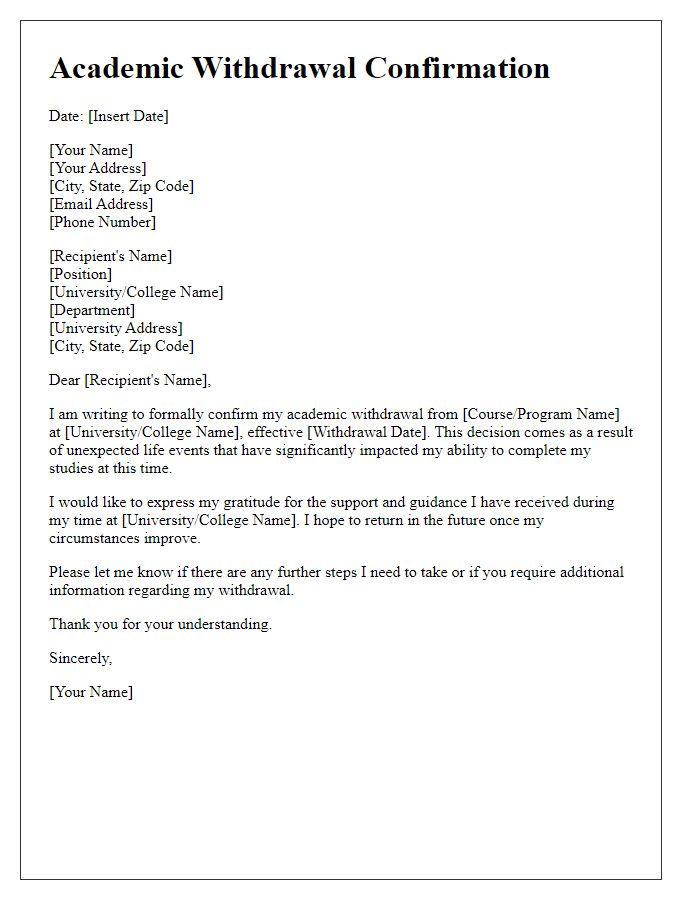

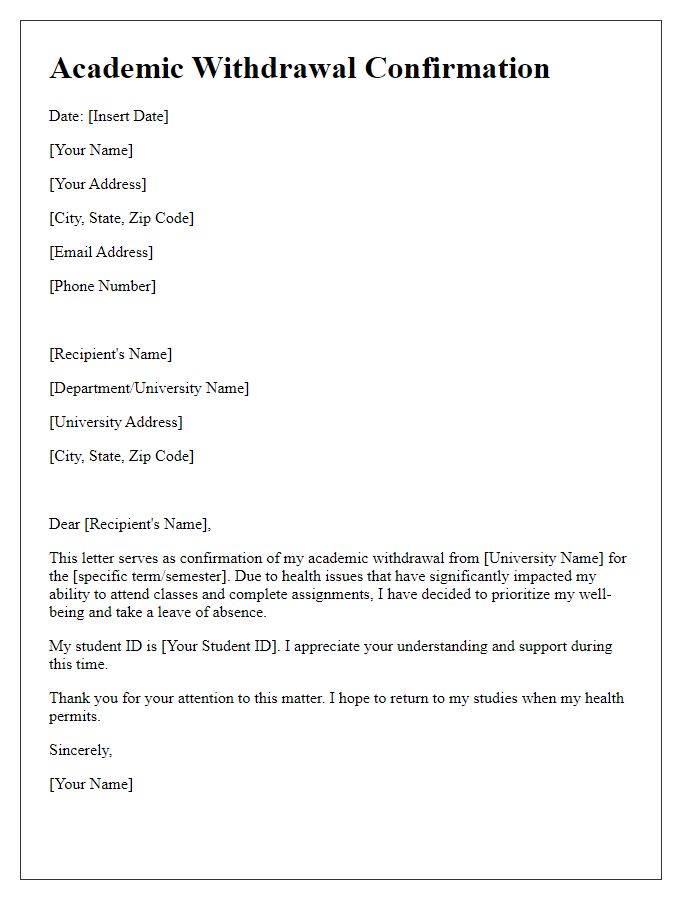
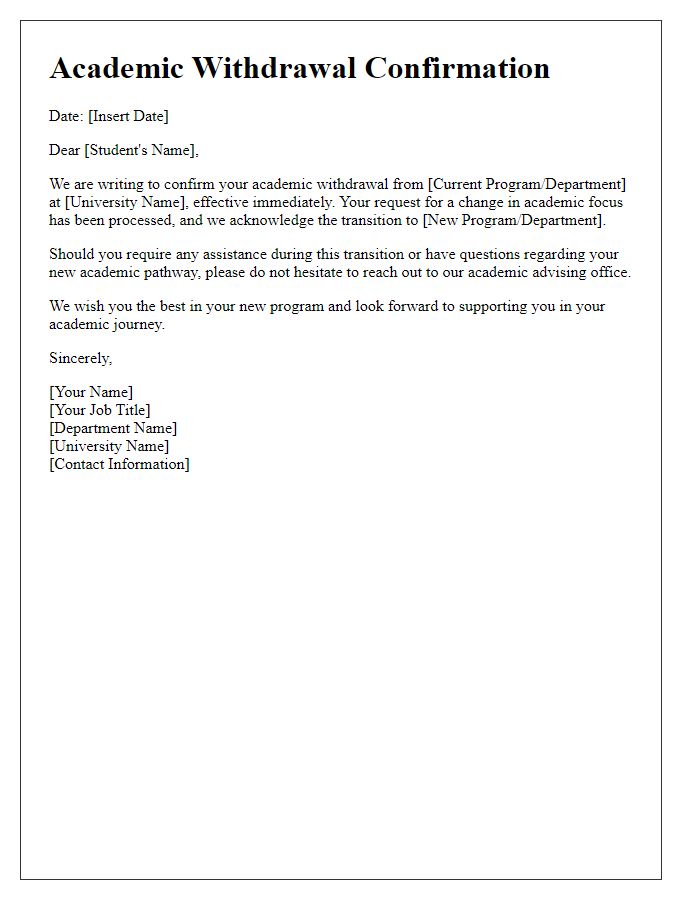


Comments